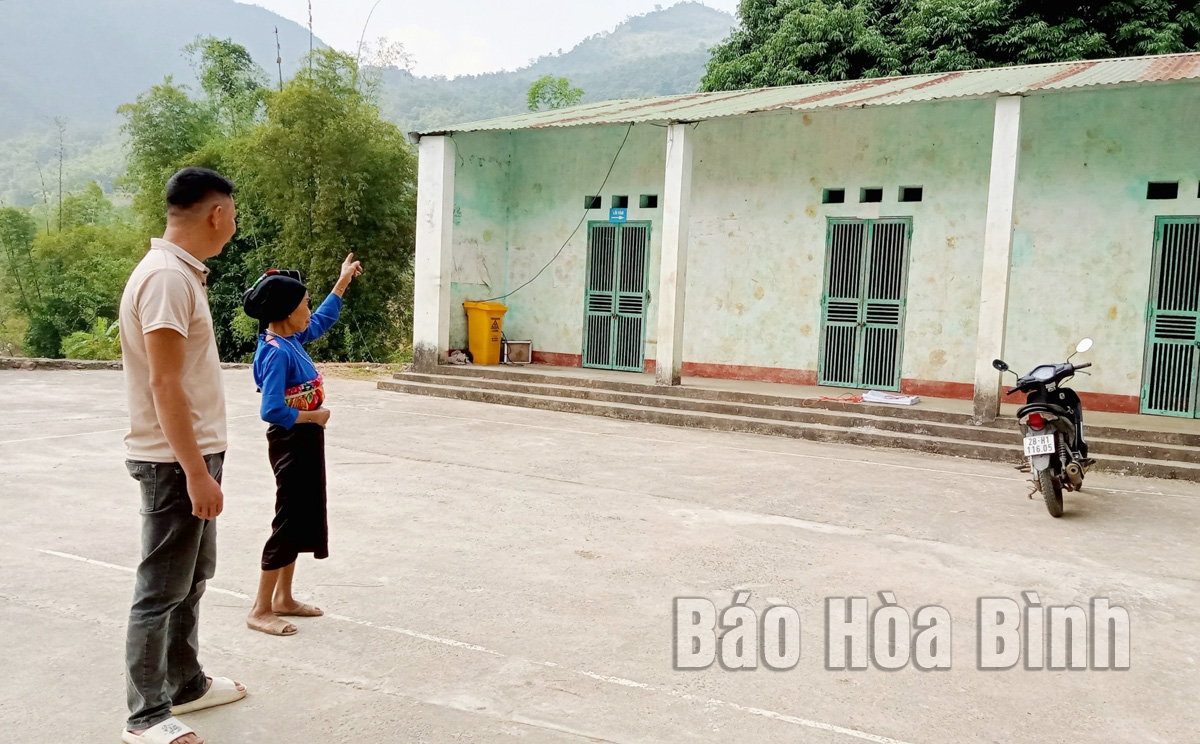
(HBO) – Upgrading community and cultural houses in hamlets and villages is one of the tasks implemented by Da Bac district's authorities in the national target programme for socio-economic development in ethnic minority and mountainous areas in 2022.
The cultural house in Na Loc village, Dong Chum commune (Da Bac district) has deteriorated, unable to meet the organisation of community activities.
With about 90 percent of the population being ethnic minorities, Da Bac is a mountainous district with many difficulties. In recent years, apart from investing in essential infrastructure development, the district authorities have concentrated on building and upgrading cultural facilities.
According to a report of the district People's Committee, as many as 12 villages and hamlets in the district do not have communal houses. Meanwhile, only three out of 16 communes have commune-level culture houses, including Hien Luong, Toan Son and Tu Ly.
Only four out of 16 communes have met criteria No. 6 on cultural facilities in new-style rural area building. According to the district’s Department of Ethnic Minority Affairs, under the national target programme for socio-economic development in ethnic minority and mountainous areas in 2022, the district has provided support in housing, water supply and infrastructure facilities for a number of disadvantaged communes, villages and hamlets.
The programme has also funded the upgrade of 10 community and cultural houses in villages and hamlets of Tien Phong, Muong Chieng, Trung Thanh and Hien Luong communes with a total investment of 2 billion VND (about 81,600 USD)./.
The Standing Board of the Hoa Binh provincial Party Committee has agreed in principle on a proposal by the Standing Board of the Party Committee of Hoa Binh city to gather feedback on the city’s 1:2000 zoning plan, which forms part of its broader urban development strategy.
Hoa Binh province has made notable progress in public administration reform and digital government development, with the satisfaction index among citizens and businesses reaching over 84%, according to recent government evaluations.
Thanks to great efforts by local authorities in recent times, the governance and public administration performance of Mai Chau district has been significantly improved.
In the afternoon of June 6, the Party Committee, the People's Council, the People's Committee and the Fatherland Front of Lac Son district solemnly held a meeting to celebrate the 139th anniversary of the district's founding (1886–2025) and the 79th anniversary of the establishment of the district's Party Committee (1946–2025). There was the attendance of Mr. Bui Van Thang, the Vice Chairman of the Provincial People's Council; Mr. Quach Tat Liem, the Vice Chairman of the Provincial People's Committee; Ms. Dang Bich Ngoc, the Deputy Head of the National Assembly Delegation of the province; as well as the former leaders of the province and district through various periods, who are the natives of the district.
Implementing the Politburo’s Resolution No. 57-NQ/TW on breakthroughs in science – technology, innovation, and digital transformation is a golden opportunity for the northern mountainous province of Hoa Binh to renew growth model, improve competitive edge and shorten digital gap.
Resolution 57-NQ/TW, issued by the Politburo on December 22, 2024, identifies sci-tech, innovation, and digital transformation as strategic breakthroughs to build a developed and prosperous nation. In Hoa Binh province, this spirit is not just a slogan, it’s being put into action through concrete initiatives that form a "new development triangle”: digital citizenship, digital economy, and digital administration.



